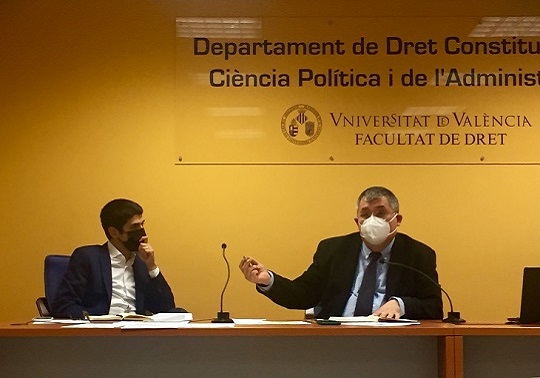
In his paper "Regulatory requirements for the use of social tools for educational innovation purposes", Professor Martínez proposed that there are usually no regulated internal procedures to channel legal regulatory compliance in teaching innovation procedures in the field of Information and Communication Technologies (ICT). This is despite the fact that, as a general principle, such activities are subject to and governed by law.
"Usually, university teaching innovation takes place in the context of the free exercise of research capacity and academic freedom," he explained. "However, on many occasions, it happens without being subject to any kind of procedure and without any kind of legal assistance from the organisation.
So, for example, if a professor sets up a repository for data analytics, the university institution would be required to make an assessment of the impact it would have on data protection. In addition, there should be "a protocol indicating how the university will support the teaching innovation process when it is subject to the law", the academic added.
Innovative practices in university education have focused mainly on social networks and applications. In this regard, it has been seen, for example, that professors often force students to register on a social network, sometimes against their will despite the fact that their free consent is required. "The question is whether a university institution has considered, or the professor could have asked someone, whether this effort of teaching innovation has full legal guarantees," Martínez said.
However, the academic suggested that teaching innovation cannot be reduced by using the law as an argument. This is because in recent times, an effort has been made to improve the legal system in this area. "What is required", concluded the professor, "is a strategic investment by organisations to make this teaching innovation viable"
International Congress
The V International Congress on the Right to Education, Teaching Innovation and Educational Improvement was held on 28 February and 1 March and was sponsored by the Conselleria d'Innovació, Universitats, Ciència i Societat Digital de la Generalitat Valenciana, Faculty of Law de la Universitat de València and the Centre de Formació i Qualitat "Manuel Sanchis Guarner".
In the following video you can see the lecture given by Professor Ricard Martínez M. starting at minute 24:43.








